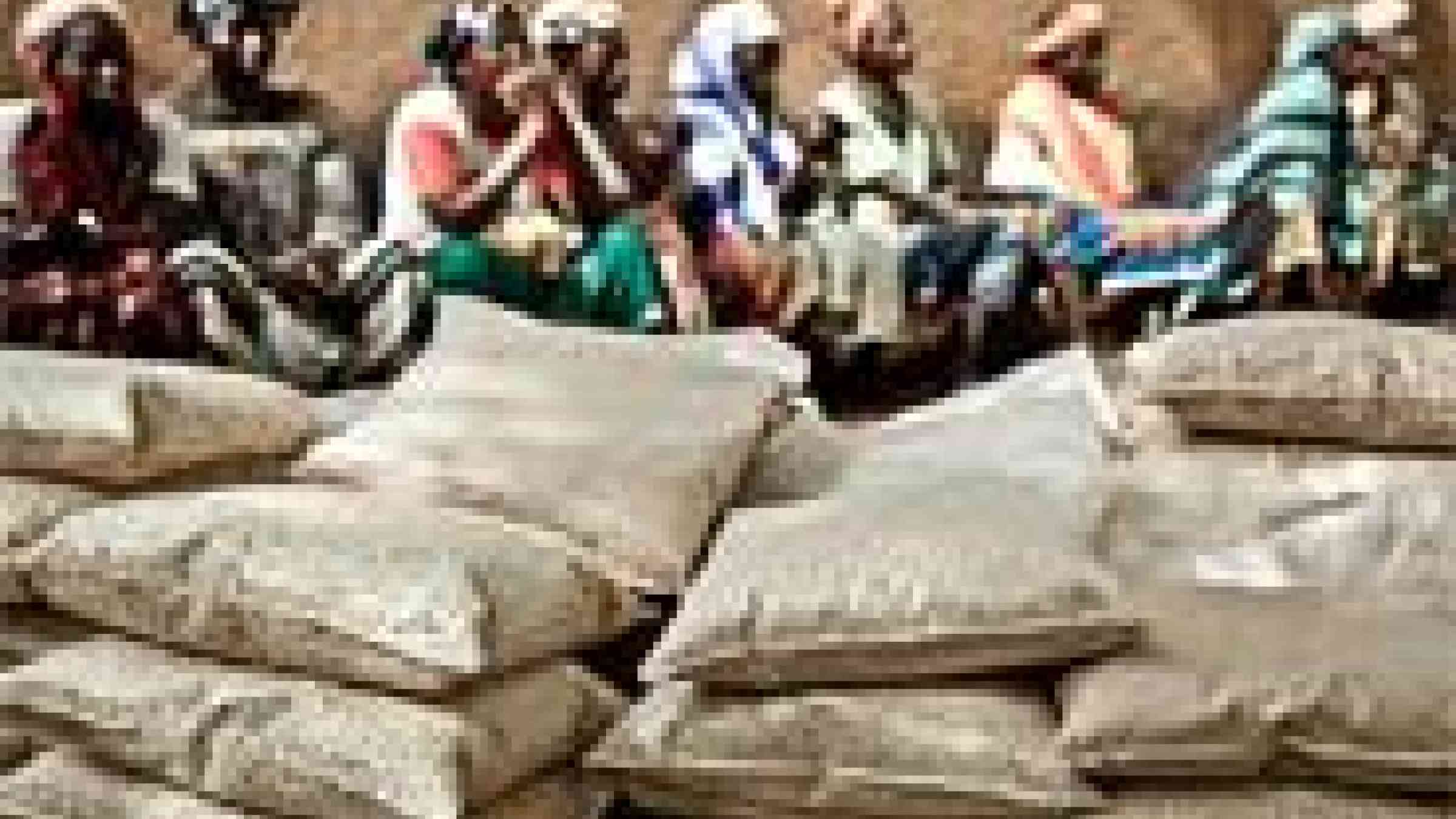Please help us improve PreventionWeb by taking this brief survey. Your input will allow us to better serve the needs of the DRR community.
Oxfam: Millions more will go hungry as world struggles to respond to unprecedented food crises and sharply rising prices

by Pablo Tosco/Oxfam http://www.oxfam.org/en/grow/issues/food-price-spikes/rising-food-price…
Press release:
PM's hunger summit welcome & should kick start reforms to end "scandal" of a billion hungry people - "we cannot keep relying on humanitarian agencies to pick up the pieces"
Rising global food prices will force millions more people to go hungry and put massive additional strain on already overstretched humanitarian agencies, Oxfam warned today ahead of this weekend's global hunger summit in Downing Street.
A briefing published by the international agency today forecasts that millions of people who are currently "just getting by" in developing countries will start going hungry unless urgent action is taken to protect them from rising food prices.
Global futures prices for food staples such as corn and wheat have increased by as much as 50% since June, triggered by severe droughts in the US and Russia. A previous rapid food price spike in 2008 contributed to food riots in up to 30 countries.
Oxfam forecasts the price spike will have the most devastating impact on developing countries that rely heavily on food imports, including parts of Latin America, North Africa and the Middle East. Yemen, which imports 90 per cent of its wheat and where 10 million people are already facing hunger and some 267,000 children are at risk of death from malnourishment, is expected to be particularly hard hit. In Yemen families are struggling to afford the food in local markets and are being forced to make difficult decisions in order to survive including marrying off young daughters so there is one less mouth to feed.
The spike in food prices is putting additional strain on the already overstretched resources of humanitarian agencies like Oxfam, the report suggests. These agencies are already battling to contain an unprecedented number of food-related emergencies in the Sahel region of West Africa, East Africa, Yemen, the Democratic Republic of Congo, Zimbabwe and Afghanistan. Together these crises are affecting more than 53m people - a population roughly equivalent to that of England.
Governments and other donors are also struggling to respond adequately to existing crises; only $3.7 billion of the $7.8bn that the UN estimates is needed to deal with the current crises has so far been given, a shortfall of $4.1bn.
Oxfam is calling on the UK's Prime Minister, David Cameron, as chair of next year's G8, to make this weekend's global hunger summit the start of a concerted effort to tackle the "scandal" of a billion hungry people worldwide.
Max Lawson, Oxfam Head of Policy, said: "For millions of people who are currently struggling to get by, rising food prices could spell disaster. We need urgent action to help the worst affected countries build their food reserves and put in place social safety-nets to enable people to weather this storm.
"But short-term action alone is not enough. The sheer scale of current and recent crises shows there is something fundamentally wrong with the way we produce and distribute food - we cannot keep relying on humanitarian agencies to pick up the pieces. Putting food in fuel tanks while people go hungry is nothing short of a scandal.
"This weekend's summit is welcome sign that the UK government is ready to grasp the nettle. It must be a first step towards real reforms that end the scandal of almost a billion hungry people in a world that produces enough food for everyone."
Oxfam is calling for other governments to follow the UK's lead in committing more funding to tackle food crises in the short term. Oxfam also wants governments to come together to address long term problems with the way food is produced and distributed globally - problems which have contributed to two food price spikes in the past four years. Specifically, Oxfam is calling on world leaders to:
- End biofuel subsidies that take food from hungry people to use for fuel - 40 per cent of US corn stocks are currently being used for this purpose;
- Stop land grabs to protect the rights of poor people to the land they need to grow food and ensure full transparency and proper consultation with communities in relation to currently secretive land deals.
- Increase investment in small-scale farmers who have suffered years of under-investment - two billion people worldwide are fed by 500 million small farms in developing countries; and
- Urgently agree a robust and binding global agreement to address climate change - an increase in extreme weather events linked to climate change is forecast to increase the number and frequency of food crises in the coming years.
For further information:
Jon Slater: 01865 472249/ 07876 476403/ jslater@oxfam.org.uk
Georgette Thomas: 01865 2037/ 07824 503108/ gthomas@oxfam.org.uk
Explore further
Please note: Content is displayed as last posted by a PreventionWeb community member or editor. The views expressed therein are not necessarily those of UNDRR, PreventionWeb, or its sponsors. See our terms of use
Is this page useful?
Yes No Report an issue on this pageThank you. If you have 2 minutes, we would benefit from additional feedback (link opens in a new window).